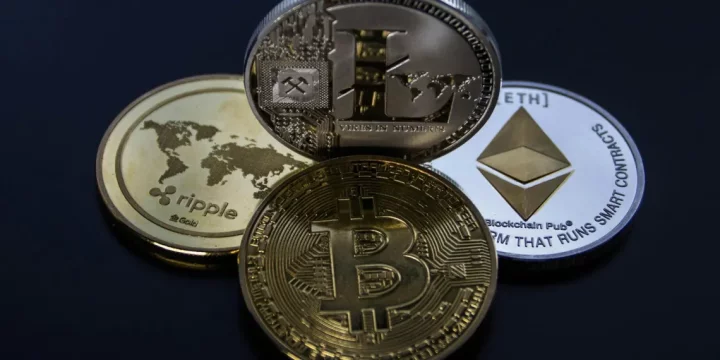Top 10 Uses of Cryptocurrencies

Cryptocurrencies have come a long way from their inception, evolving from a niche concept to a mainstream financial instrument. Today, they serve a multitude of purposes beyond just being a medium of exchange. Here are the top 10 uses of cryptocurrencies that highlight their versatility and innovation.
1. Online Payments and Transactions
Seamless and Secure Transactions
Cryptocurrencies offer a streamlined way to conduct online transactions. They provide a high level of security, reducing the risk of fraud and chargebacks. Bitcoin, Ethereum, and other cryptocurrencies enable users to make payments across borders without the need for traditional banking intermediaries, which significantly lowers transaction costs and times.
2. Investment and Trading
A New Asset Class
Cryptocurrencies have become a popular investment vehicle, often referred to as digital gold. Platforms like Coinbase, Binance, and Kraken allow users to buy, sell, and trade a variety of cryptocurrencies. The volatility of these assets presents opportunities for significant returns, attracting both individual and institutional investors.
3. Decentralized Finance (DeFi)
Revolutionizing Traditional Finance
DeFi platforms utilize blockchain technology to offer financial services such as lending, borrowing, and earning interest without intermediaries. This system is more inclusive, providing financial services to people without access to traditional banking. Popular DeFi platforms include Uniswap, Aave, and Compound.
4. Smart Contracts
Automating Agreements
Smart contracts are self-executing contracts with the terms directly written into code. They run on blockchain networks like Ethereum, ensuring that agreements are automatically enforced when predefined conditions are met. This technology is transforming industries such as real estate, insurance, and supply chain management by reducing the need for intermediaries and enhancing transparency.
5. Gaming and Virtual Goods
In-Game Economies
The gaming industry has embraced cryptocurrencies, allowing players to buy, sell, and trade virtual goods and assets. Platforms like Enjin and Decentraland enable gamers to monetize their gaming experiences and own in-game items in a verifiable manner. Blockchain-based games often have their own native tokens, adding a layer of economic interaction within the gaming ecosystem.
6. Online Gambling and Casinos
Popular in Online Casinos
Cryptocurrencies and blockchain technology are increasingly popular in online casinos. They offer anonymity, fast transactions, and provably fair gaming, enhancing the overall user experience. Players can use cryptocurrencies to place bets, withdraw winnings, and enjoy a variety of casino games without the constraints of traditional banking.
Article Page with Financial Support Promotion
Nigerians need credible journalism. Help us report it.
Torizone delivers fact-based journalism for Nigerians, by Nigerians – and our community of supporters, the readers who donate, make our work possible. Help us bring you and millions of others in-depth, meticulously researched news and information.
It’s essential to acknowledge that news production incurs expenses, and we take pride in never placing our stories behind a prohibitive paywall.
7. Remittances
Efficient Cross-Border Transfers
Cryptocurrencies provide a cost-effective solution for sending money across borders. Traditional remittance services can be slow and expensive, but cryptocurrencies like Bitcoin and Ripple’s XRP facilitate quick, low-cost transfers. This is particularly beneficial for people in developing countries who rely on remittances from family members working abroad.
8. Privacy and Security
Enhanced Data Protection
Cryptocurrencies like Monero and Zcash are designed with a focus on privacy and security. They use advanced cryptographic techniques to ensure that transactions are private and untraceable, offering an additional layer of security for users concerned about their financial privacy.
9. Fundraising and Crowdfunding
Innovative Funding Mechanisms
Cryptocurrencies have introduced new ways of fundraising through Initial Coin Offerings (ICOs) and Security Token Offerings (STOs). These methods allow startups to raise capital from a global pool of investors without the need for traditional venture capital. Blockchain-based crowdfunding platforms provide transparency and reduce the risk of fraud.
10. Digital Identity and Verification
Securing Personal Data
Blockchain technology is being used to create secure digital identities, helping to prevent identity theft and fraud. Systems like uPort and Civic allow individuals to control their personal information, sharing it only when necessary.
This decentralized approach to identity verification can streamline processes in sectors like banking, healthcare, and government services.
Cryptocurrencies and blockchain technology continue to reshape various industries by offering innovative solutions that improve efficiency, security, and accessibility. As adoption grows, we can expect to see even more diverse and impactful uses of these digital assets in the future.
FAQ
1. What are cryptocurrencies?
Cryptocurrencies are digital or virtual currencies that use cryptography for security. They operate on a technology called blockchain, which is a distributed and decentralized ledger. Popular examples include Bitcoin, Ethereum and Litecoin.
2. How can I buy cryptocurrencies?
You can buy cryptocurrencies on online exchanges such as Coinbase, Binance, and Kraken. To do this, you need to create an account, verify your identity and add a payment method, such as a credit card or bank account.
3. Are cryptocurrencies safe?
Cryptocurrencies offer high security due to cryptography and blockchain technology. However, it is essential to store them in secure wallets and be aware of market risks and possible fraud.





